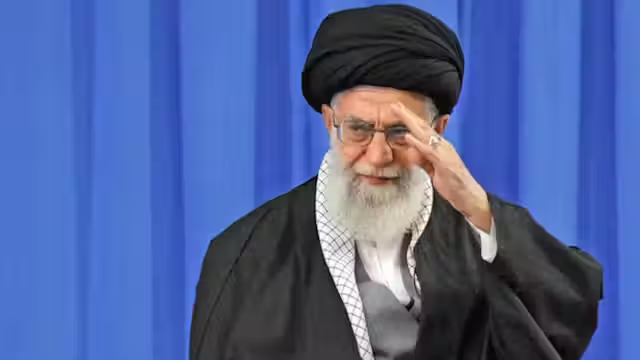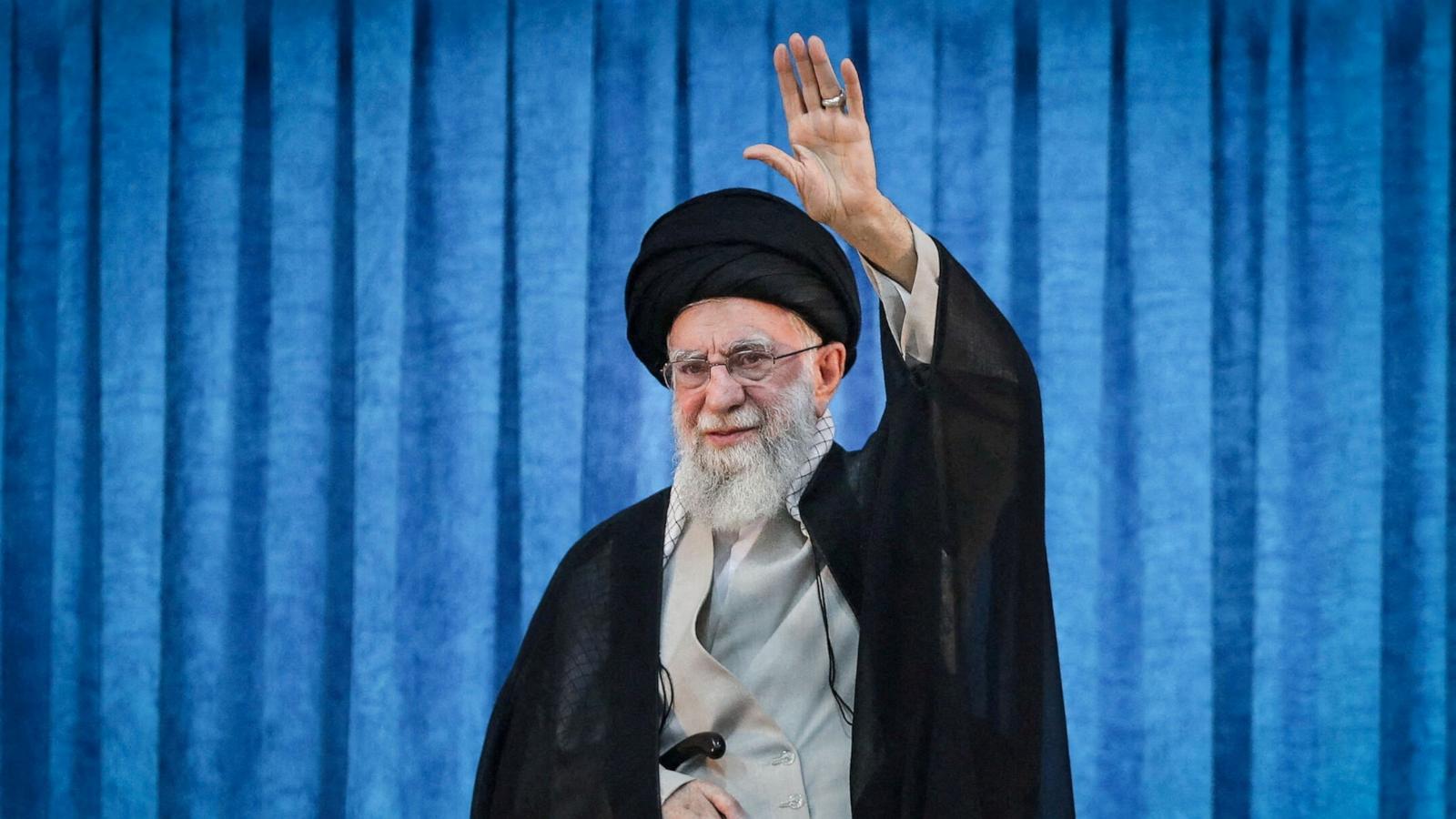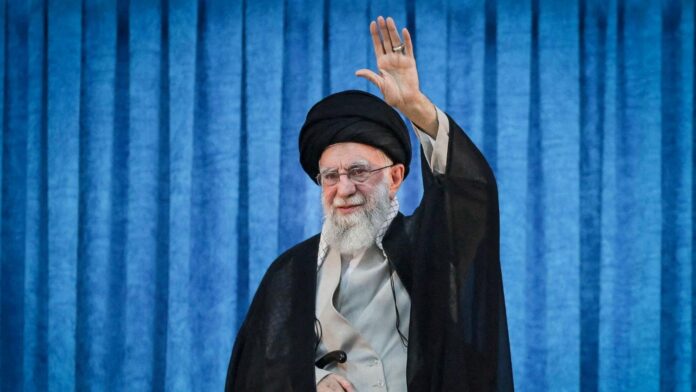Khamenei Vows Iran Will Resist US pressure. Iran’s Supreme Leader Ayatollah Ali Khamenei declared on Sunday that the Islamic Republic will not bow to what he described as United States demands for obedience, insisting that the Iranian nation will resist foreign pressure with all its strength. His remarks came as Iran and European powers agreed to resume talks aimed at reviving stalled negotiations over Tehran’s nuclear program.

‘Khamenei Vows Iran Will Resist’
Speaking at a religious ceremony in Tehran marking the death anniversary of Imam Reza, the eighth Shiite Imam, Khamenei warned against attempts to undermine Iran’s sovereignty.
“They want Iran to be obedient to America. The Iranian nation will stand with all of its power against those who have such erroneous expectations,” he told attendees, according to state media. Khamenei Vows Iran Will Resist US pressure.
The Supreme Leader added that calls for Iran to moderate its rhetoric against the United States and engage in direct negotiations overlooked deeper realities. “People who ask us not to issue slogans against the US, to have direct negotiations with the US, only see appearances. This issue is unsolvable,” he said.
Nuclear Talks Resume with Europe
Khamenei’s speech came two days after Tehran reached an agreement with France, Britain, and Germany to restart discussions on Iran’s nuclear program. The three European powers have expressed growing frustration over stalled progress and warned that they may invoke a “snapback” mechanism at the United Nations to reinstate international sanctions if Iran refuses to rejoin substantive talks.
Negotiations are scheduled to begin Tuesday in an effort to prevent further escalation. The talks follow months of tensions, particularly after a destructive 12-day conflict in June during which Israel and the United States bombed several Iranian nuclear facilities. In response, Tehran suspended dialogue with Washington.
Blame on US and Israel
The Supreme Leader placed responsibility for the ongoing tensions on the United States and its regional ally, Israel. He accused them of attempting to create internal discord in Iran, saying, “The way forward for the enemy is to create division. Agents of America and the Zionist regime seek to sow discord.”
Khamenei urged Iranians to maintain unity in the face of external threats, framing resistance to American influence as a national duty. “The Iranian people will not allow their country to be subjugated,” he stressed.

Long-Standing Dispute Over Nuclear Program: Khamenei Vows Iran Will Resist
Western governments argue that Iran’s nuclear activities are aimed at developing weapons capabilities, an accusation Tehran consistently denies. Iranian officials insist the program is designed solely for peaceful purposes, including electricity generation and medical applications.
The dispute dates back decades but intensified following the 2015 Joint Comprehensive Plan of Action (JCPOA), under which Iran agreed to curtail its nuclear activities in exchange for sanctions relief. While the deal initially reduced tensions, former US President Donald Trump withdrew from the accord in 2018 and reinstated crippling sanctions under his “maximum pressure” policy. Israel, a vocal critic of the agreement, strongly supported the US withdrawal.
Escalation in 2025
This year’s tensions escalated sharply in June, just as Iran and Washington were preparing for their sixth round of nuclear talks. The sudden outbreak of hostilities between the two sides led to widespread damage to Iran’s nuclear infrastructure and effectively derailed diplomacy. The 12-day conflict has since become a major sticking point in the already fragile negotiations.
The European powers are now attempting to salvage diplomacy by engaging Tehran directly. However, US participation remains uncertain, with Washington linking future talks to guarantees that Iran will not expand enrichment activities.
Historical Strains with Washington
Relations between Iran and the United States have been severed since the 1979 Islamic Revolution, which overthrew Shah Mohammad Reza Pahlavi, a close ally of Washington. The subsequent hostage crisis and decades of mutual hostility have shaped a relationship defined largely by confrontation.
Despite intermittent diplomatic openings, mistrust between the two nations has persisted. Khamenei, who has consistently opposed direct negotiations with Washington, views American demands as part of a broader effort to weaken the Islamic Republic’s independence.
Outlook Ahead of Talks
The resumption of talks with Europe is seen as a critical test of whether diplomatic channels can be revived. Analysts suggest that while European leaders may try to broker a path forward, the absence of direct US-Iran engagement complicates the prospects for success.
For now, Khamenei’s rhetoric signals little change in Iran’s posture. By framing resistance to US pressure as a matter of national dignity and survival, the Supreme Leader has reaffirmed that Tehran is unlikely to soften its stance in the face of Western demands.
As negotiations with Europe loom, the international community watches closely to see whether diplomacy can prevent another cycle of confrontation.

